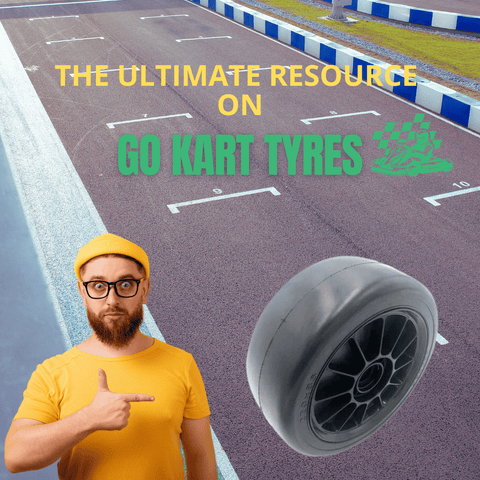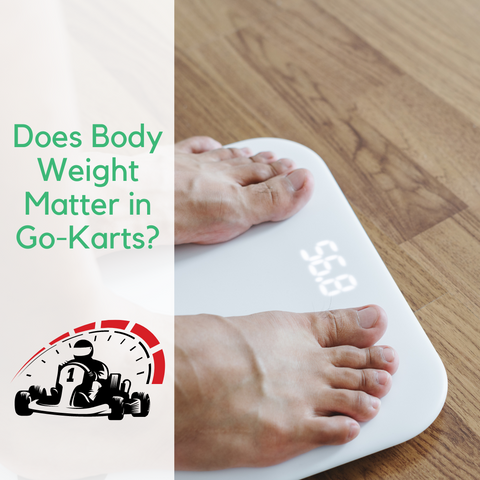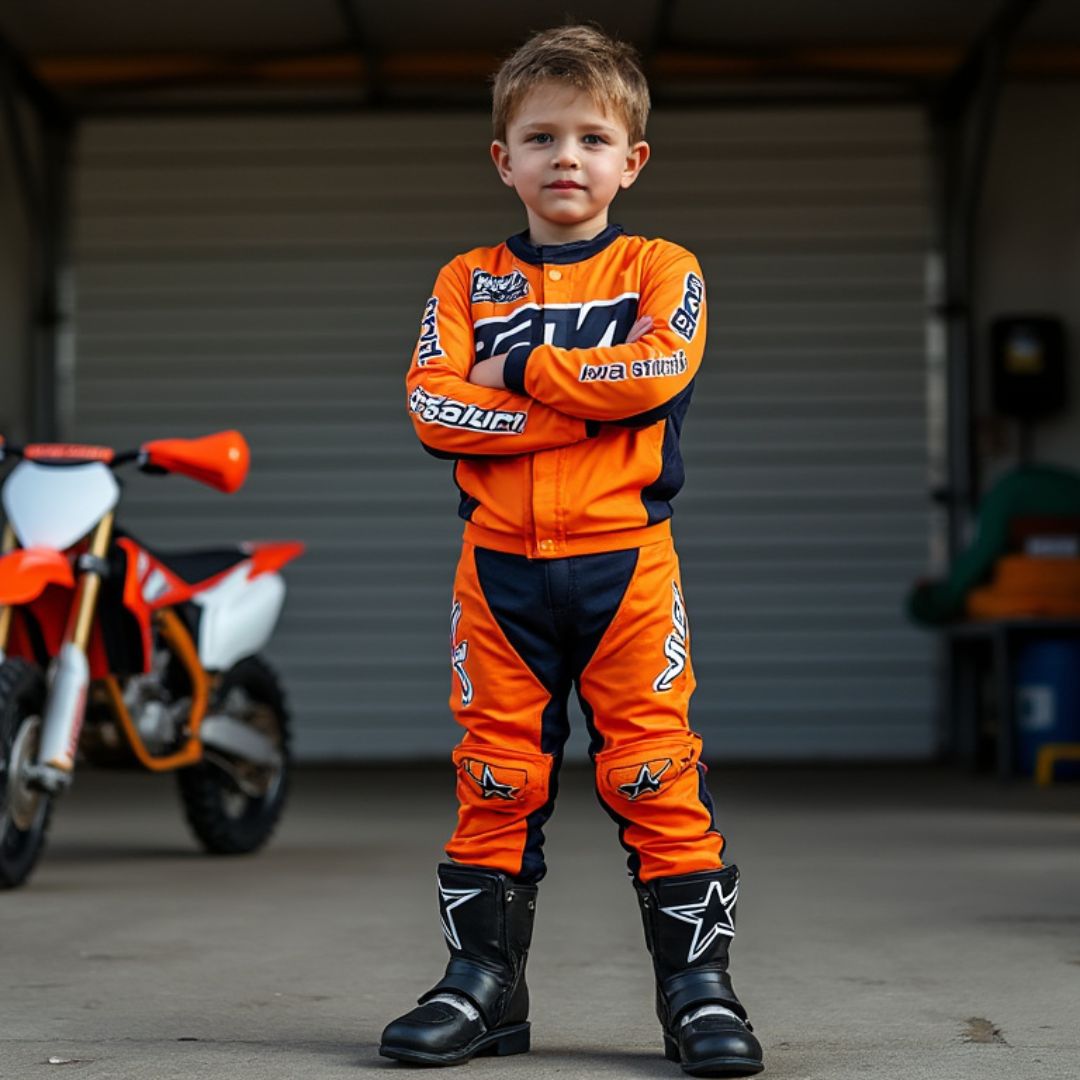
Struggling with a go-kart that lacks grip can be frustrating, whether you're new to racing or aiming for another win.
Mastering grip is essential for control and speed on the track.
This guide aims to demystify the fundamentals of go-kart grip, covering tyre pressure optimisation, weight distribution, engine speed management, and more.
Our goal is simple: to enhance your kart's performance for a smoother, faster ride.
By applying these techniques, you'll improve not just lap times but your connection with the kart, ensuring it responds precisely to your every command.
Let's gear up to elevate your racing experience, making every turn more efficient and every race more competitive.
Optimising Tyre Pressure
Discover the critical role tyre pressure plays in maximising your go-kart's grip on the track.
This section offers practical advice on regularly checking and adjusting tyre pressure to adapt to varying track temperatures and conditions, ensuring optimal performance during every lap.
- Start with Manufacturer Guidelines: Begin with the tyre pressure recommendations from your go-kart manufacturer. This is your baseline.
- Adjust for Conditions: Recognise that track temperature and weather significantly affect tyre pressure. Cooler conditions may require higher pressures for optimal grip, while hotter tracks might call for lower pressures.
- Regular Checks: Before each racing session, check and adjust your tyre pressures. This ensures you're starting with the optimal setup.
- Mid-Race Adjustments: Be prepared to tweak your tyre pressures during breaks in longer races to maintain the best grip as conditions change.
Strategic Weight Distribution
Learn how the distribution of weight in your go-kart can significantly affect its handling and stability.
We delve into techniques for achieving the perfect balance that enhances cornering stability and acceleration, providing tips for arranging additional weight and adjusting seat positions to optimise performance.
- Identify the Balance: Aim for a balanced weight distribution between the front and back of your kart. This stability is crucial for maintaining control, especially in corners.
- Centralise Extra Weight: Place any additional weights near the kart's centerline, ideally under the steering wheel, before evenly distributing them along the chassis.
- Test and Adjust: Experiment with different weight placements to find the best balance for your driving style and the track's demands, focusing on a setup that allows for stable cornering and quick acceleration.
Managing Engine Speed Efficiently
Explore the importance of managing your engine's RPM to maintain tyre grip and prevent unnecessary wear.
This section guides you through the art of engine speed management, including when to push your engine and when to conserve power for the most effective race strategy.
- Understand RPM Management: High RPMs are exciting but can be inefficient and wear your engine faster if not managed well. Use high RPMs judiciously, especially in the later stages of the race.
- Adapt Gear Selection: Opt for lower gears when exiting corners to allow for smoother and more controlled acceleration, ensuring your kart remains stable and ready for what's next.
- Monitor and Adjust: Pay attention to how your kart responds during the race. Adjust your driving style and engine speed based on the track conditions and how your kart is handling.
Seat Position Matters!
Uncover how adjusting your seat position can lead to significant improvements in your go-kart's grip and overall handling.
This part emphasises finding the "sweet spot" for seat placement, tailored to your body type and driving style, for enhanced control and comfort.
- Evaluate Your Position: Start by assessing your current seat position. Being too far forward or back can hinder your kart's responsiveness and your control over it.
- Find the Sweet Spot: Aim to locate the ideal seat position that balances your body type and driving style. This spot enhances the kart's grip and handling, making it feel like an extension of yourself.
- Trial and Error: Experiment with different seat positions during practice sessions. Adjust your seat forward or backward in small increments until you achieve optimal responsiveness and control.
- Lock in Your Position: Once you've found your "sweet spot," ensure your seat is securely fixed in this position for consistent performance across races.
Choosing Between Soft and Hard Tyres
Navigate the decision-making process between opting for soft or hard tyre compounds.
This segment provides insights into how different tyre choices can impact your racing performance under various weather conditions and track characteristics, helping you make informed decisions for better grip.
- Assess Conditions: Consider the track's condition and weather before selecting your tyres. Soft tyres work well for short races or in cooler temperatures but wear quickly. Hard tyres are better suited for longer races and hotter conditions, offering durability.
- Experiment with Mixes: Some racers find success with a mix of soft and hard tyres, adapting their braking strategy to match. Test different combinations to see what suits your driving style and the track best.
- Make Informed Choices: Use practice sessions to understand how different tyres perform under various conditions. This knowledge will help you make strategic decisions on race day.
Adapting Your Style Across Conditions
Adaptability is key in competitive go-kart racing.
This section encourages drivers to adjust their driving techniques in response to changing track conditions, such as wet weather, to maintain control and stay competitive, offering strategies for modifying braking and turning approaches.
- Recognise the Impact of Conditions: Understand how changes in track conditions, like wetness, affect grip and handling. This awareness is crucial for adapting your driving strategy.
- Adjust Your Approach: In wet conditions, adopt a more cautious braking technique and modify your approach to turns. The goal is to maintain control and minimise sliding.
- Stay Flexible: Be prepared to adjust your driving style as track conditions change. This flexibility can help you stay competitive and maintain control, no matter the weather or track state.
Leverage Accumulating Rubber Deposits
Gain an edge by learning how to use rubber deposits on the track to your advantage.
We discuss how to identify and incorporate these high-grip areas into your racing line, improving lap times and efficiency on the track.
- Spotting Rubber Deposits: Start by training your eye to recognise rubber build-up on the track. These areas usually appear darker and are found in the racing line where tyres frequently pass.
- Testing Different Lines: During practice sessions, experiment with driving through these rubber-rich patches. Notice how your kart's grip changes as you utilise these spots.
- Adapt Your Racing Line: Based on your observations, adjust your racing line to include these high-grip areas. This can significantly improve your lap times, especially in conditions where grip is scarce.
Fine Tuning Vehicle Setup Parameters
The devil is in the details, especially when it comes to your kart's setup.
Adjusting seat heights, tweaking suspensions, and fine-tuning alignments can make a significant difference in how your kart handles on the track.
These adjustments should be tailored to the specific circuits you're racing on, considering factors like climate and track layout.
Don't be afraid to experiment and consult with experts or reputable sources to get your setup just right.
Conclusion
Mastering the art of grip on the track comes down to understanding and optimising several key factors, from tyre pressure and weight distribution to engine management and seat positioning.
By embracing these principles and continuously adapting your approach to the conditions and your kart's setup, you'll develop a driving technique that's not only effective but also uniquely yours.
Remember, consistency and technique development are the foundation of great racing.
We'd love to hear how you apply these methods in your racing adventures, so feel free to share your experiences and tips in the comments below.
Let's keep the conversation going and the rubber on the road!
FAQs: Enhancing Go-Kart Grip and Performance
How often should I check and adjust my go-kart's tyre pressure for optimal grip?
Tyre pressure should be checked before every racing session to ensure it matches the day's track and weather conditions. Adjustments might also be necessary between sessions as temperatures and track conditions change. Keeping tyre pressures within the recommended range based on these factors is crucial for maintaining optimal grip.
Can the type of seat in my go-kart affect its handling and grip on the track?
Yes, the type of seat and its positioning can significantly impact your go-kart's handling and grip. A properly fitted seat ensures that the driver's weight is distributed optimally, enhancing the kart's balance and grip during turns. Adjusting the seat position for comfort and control can lead to improved lap times and a more enjoyable driving experience.
What's the best way to practice using rubber deposits on the track for a better grip?
Practicing on the track during less crowded times can allow you to experiment with different lines and identify areas with rubber deposits. Focus on how these patches affect your kart's handling and grip. Use practice sessions to refine your ability to navigate these spots effectively, integrating them into your racing line for competitive advantages.
How important is it to fine-tune my go-kart's setup for each race, and what should I prioritise?
Fine-tuning your go-kart setup is vital for achieving optimal performance on different tracks and under varying conditions. Start with adjustments that affect grip and handling, such as tyre choice, suspension settings, and weight distribution. Prioritising these elements based on the specific characteristics of each track can lead to significant improvements in lap times and overall performance.
Get in Touch 🚀
Loved our article on “What Makes a Go kart grip up for a Track” Got the itch to dive into more wheely-awesome info?
Whether you're a parent or a grandparent, we're here for all your kids ride-on toy questions! 🚗💨
Feeling click-happy?
Jump straight into our wonderland at RiiRoo.com.
Or, if you're more the chatty type, give our Live Chat a whirl and let's talk toys!








Share:
Everything You Need To Know About Drift Karts
Choosing the Right Ride-On Toy for Special Needs Children